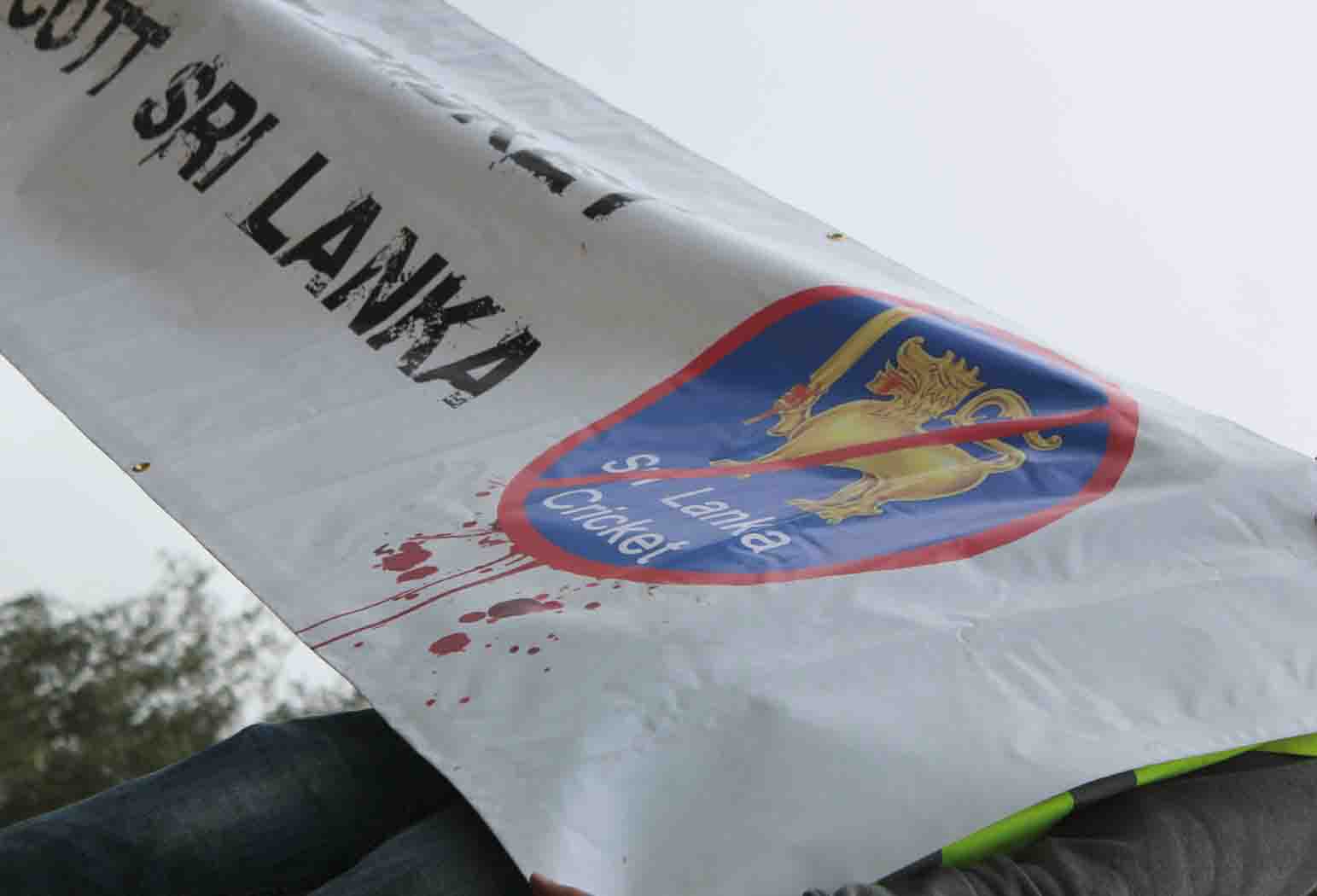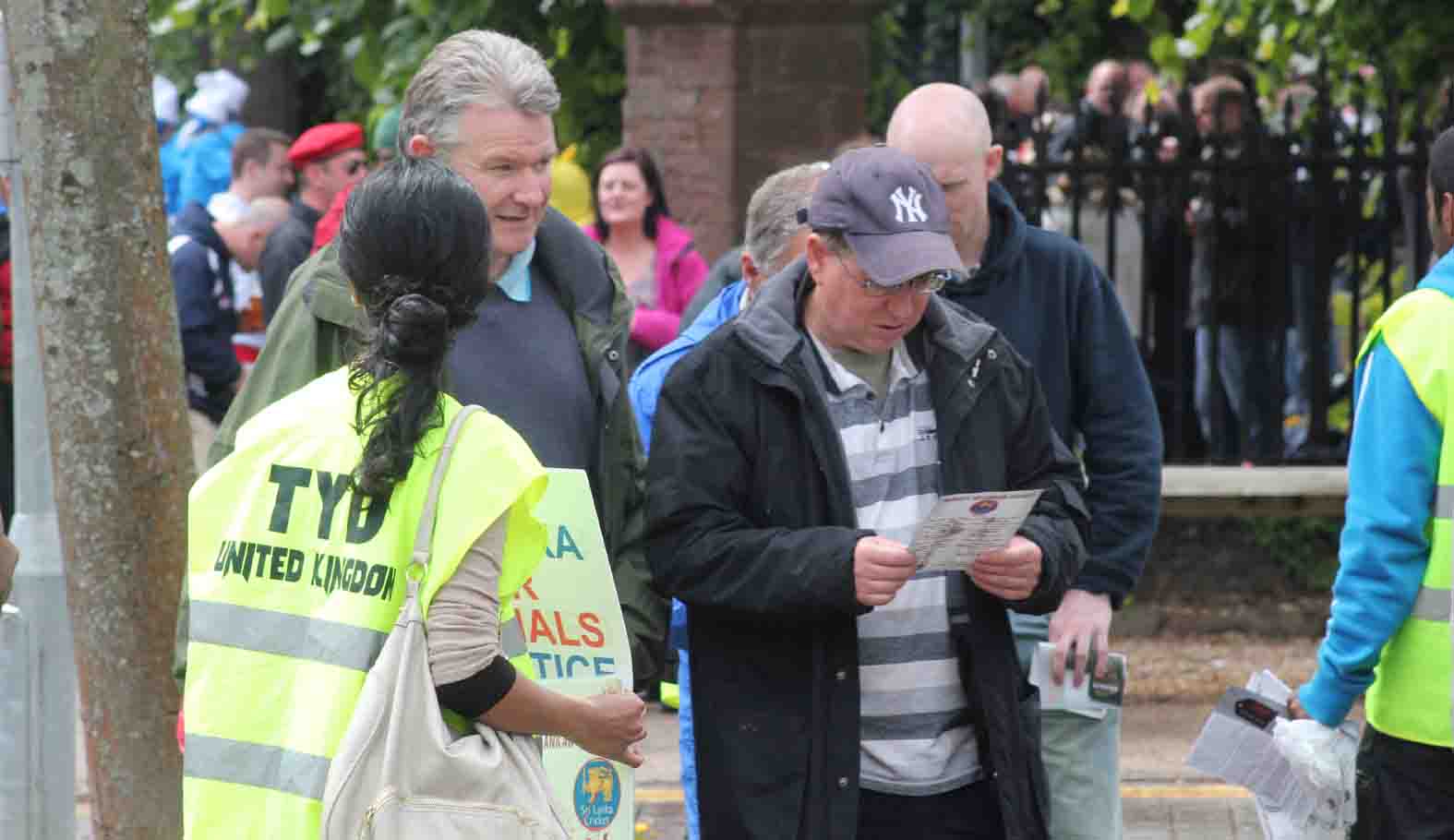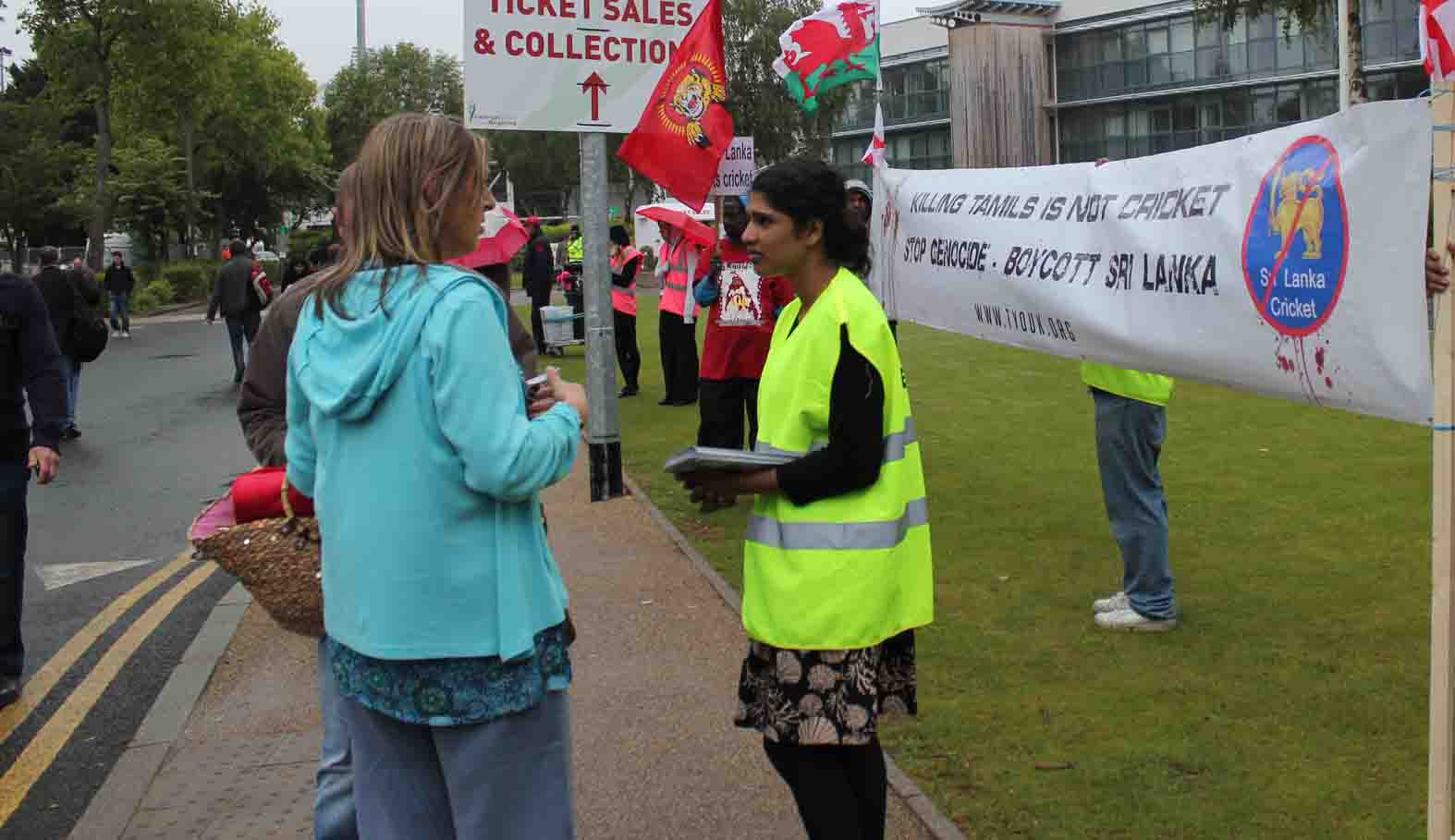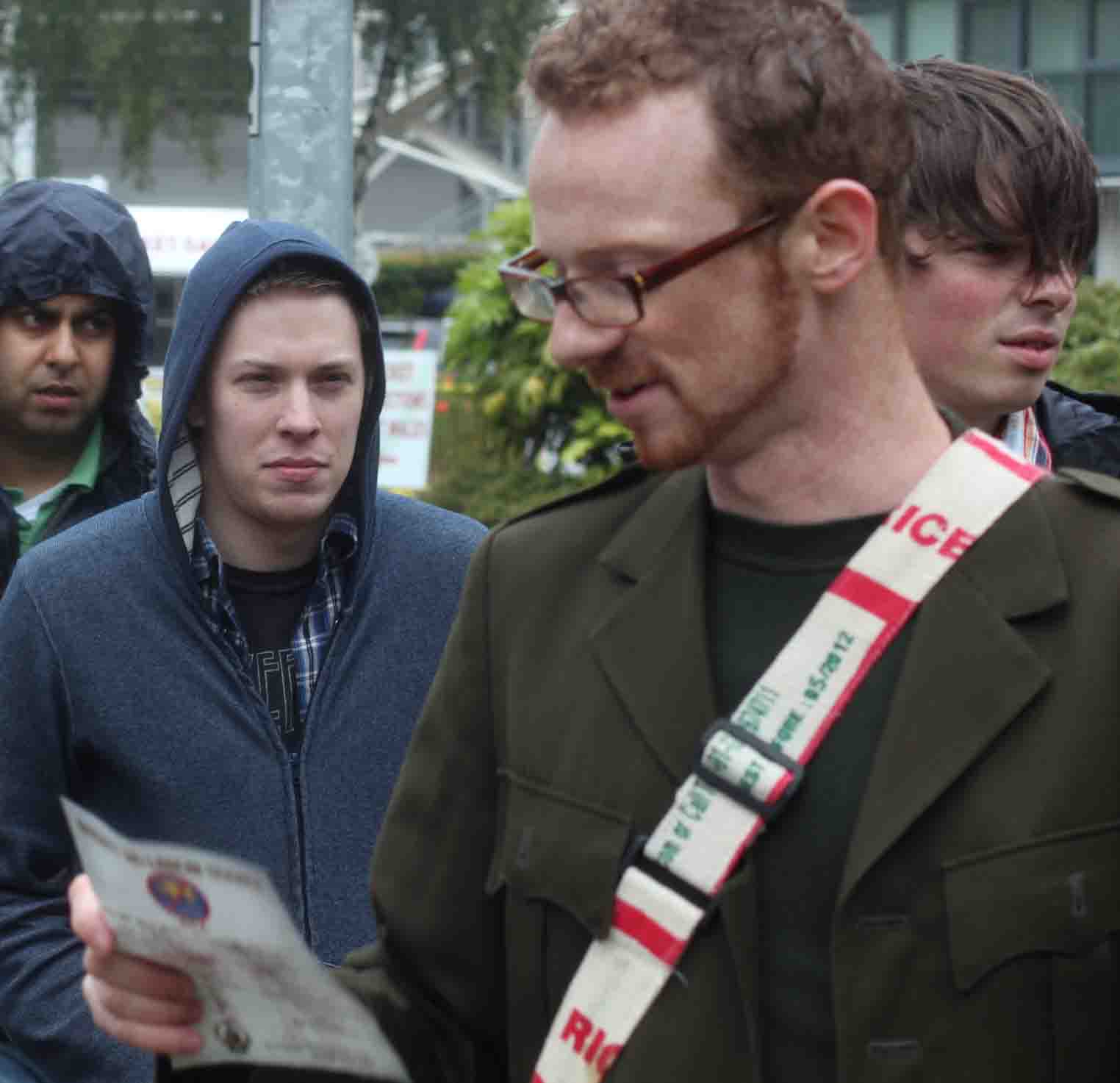 |
Rain that drenched Tamil youth activists conducting a major leafleting effort in support of the ‘Boycott Sri Lankan Cricket’ campaign on Saturday, the third day of Sri Lanka’s first test match against England, proved a blessing in disguise when it stopped play till lunch, allowing them to canvass crowds of spectators milling outside the Swalec Stadium in Wales.
 |
 |
 |
 |
Activists of the Tamil Youth Organisation (TYO) who conducted the campaign from 10am to 2pm were joined by Tamil students from Cardiff University, and some Tamils who drove over from nearby towns.
Local police gave activists permission to leaflet at the venue and allocated a position immediately outside the stadium’s main entrance to set up their large banner and Tamil Eelam, Wales and England flags.
The vantage point, where paths to the entrance from all three car parks converged, ensured every spectator passed the banner and flags, and could be offered a leaflet organizers said.
TYO activists wearing yellow dayglo jackets, set up at 10am in the persistent rain as the first spectators began arriving for the 11am match start.
Having studied the layout of the site, activists changed their tactics from the day-long noisy demonstration which accompanied Sri Lanka’s first match (against Middlesex County) on May 14, TYO spokesperson Thusiyan Nandakumar told TamilNet.
“We came prepared with loudhailors, but as we found we had direct access to every spectator as they walked into the stadium, we decided to handout leaflets and engage them in conversation instead,” Nandakumar said.
 |
 |
“Unfortunately we only brought two thousand leaflets and soon ran out.”
With rain having prevented play starting, many spectators soon exited the stadium to wait outside, a large number converging on the Y Mochyn Du pub located just directly opposite the activists’ flags and banner which read: “Killing Tamils is not cricket. Stop genocide. Boycott Sri Lanka”.
Sri Lanka and the abuses there became a topic of conversation in the pub, with customers returning to the stadium – some a little unsteady – stopping to encourage activists, sometimes with a hug, or take photographs with the flags.
“Although we have been generally well received at [our] other events, we were really surprised by the warmth and words of encouragement we received today,” Nandakumar said.
“Most people we approached, bar a couple, were supportive and sympathetic. Many were aware to some extent of the atrocities in Sri Lanka and understood why we were campaigning for a cricket boycott, as in the case of Zimbabwe and Apartheid South Africa. Coverage in the press of our earlier protest [on May 14] has also helped.”
 |
 |
 |
 |
 |
 |
 |
 |
 |
 |
 |
 |
 |
 |
 |
“Some [spectators] sheepishly said they’d already paid for tickets [here], but would be boycotting future matches. It was good natured all day,” he added.
The police had dispensed with the barriers usually set up for protests, allowing activists to move freely around the entrance’s forecourt.
A couple of the police officers on general duty for the match occasionally passed during the day, and the Inspector in charge came by later to praise the activists for their orderly campaign, they said.
The vast majority of spectators on the day were England supporters, Nandakumar said. A large contingent of England’s ‘Barmy Army’ – including two dressed as a pantomime horse – stopped to take leaflets and chat to activists.
“It was particularly surreal,” Nandakumar admitted, “to have a conversation about Sri Lanka’s war crimes with both ends of a horse.”
